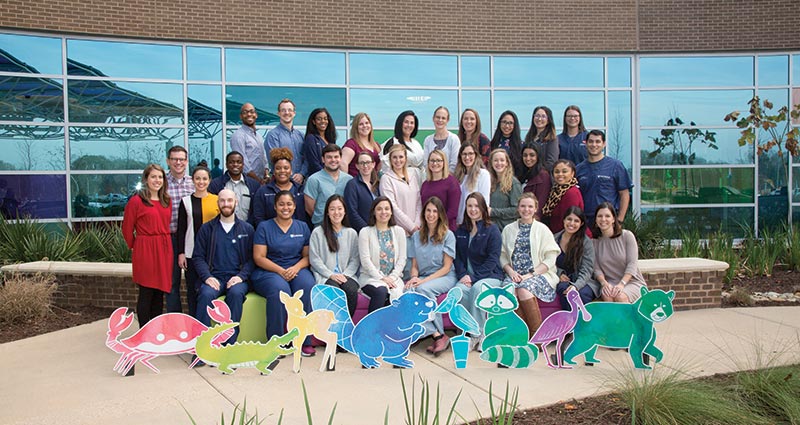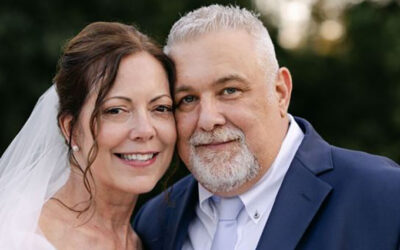Our health system has operationalized our Diversity, Equity & Inclusion work and created a report to share the impact of this foundational work. This team member profile and others share the story of these efforts and how their own impact is reflected in our work. We are committed to investing and improving to ensure diverse and inclusive environments where our patients, team members and communities can thrive.
Although diversity, equity and inclusion weren’t emphasized as much when pediatric hospitalist Melissa Roy, MD, went to medical school, it’s something that’s very important to her personally now as the program director of Our Lady of the Lake Pediatric Residency program.
“We need to think a little bit differently about resident recruitment and faculty recruitment and retention, making sure we’re having a diverse work staff and truly making people feel included,” Dr. Roy says.
The residency program’s efforts include educational emphasis for residents that go beyond modules or lectures. Some of the topics covered include cultural humility, Dialogue on Race Louisiana, the effects of poverty on children, adverse childhood experiences, micro-aggressions and implicit bias.
“We’re still early in this journey, but we’re learning how to help with awareness and help faculty incorporate this into their daily interactions with residents and patients,” Dr. Roy says.
Recruitment is an important piece of any DEI puzzle. “We’ve always been fortunate to have a diverse residency program, so it has perpetuated itself,” she says. “How do we make sure we’re being really purposeful rather than expecting it to continue to draw underrepresented minorities in medicine?”
The work includes making sure residents and medical students within the program know where they could go if they face microaggressions or otherwise need support. They are also working with Coletta Barrett, vice president of mission for the Baton Rouge region, on launching an additional mentorship program that will allow residents to branch out beyond pediatrics and be paired with clinical and non-clinical mentors.
Research is another part of the program’s equation, focused on ensuring scholarly activity takes into consideration social determinants of health and patient demographics. The residency program recently completed a two-year project focused on health literacy, which fits into our larger DEI efforts.
All of the learnings the program offers to residents and medical students are also open to faculty, in an effort to get even more people involved.
“This is such an important issue that requires our entire institution to mobilize resources and invest in our community, and it will not be an overnight success,” Dr. Roy says.
In addition to Dr. Roy as program director, the Pediatric Residency Program has two associate program directors: Angie Byrd, MD, pediatric hospitalist, and Michael Bolton, MD, pediatric infectious disease specialist.




